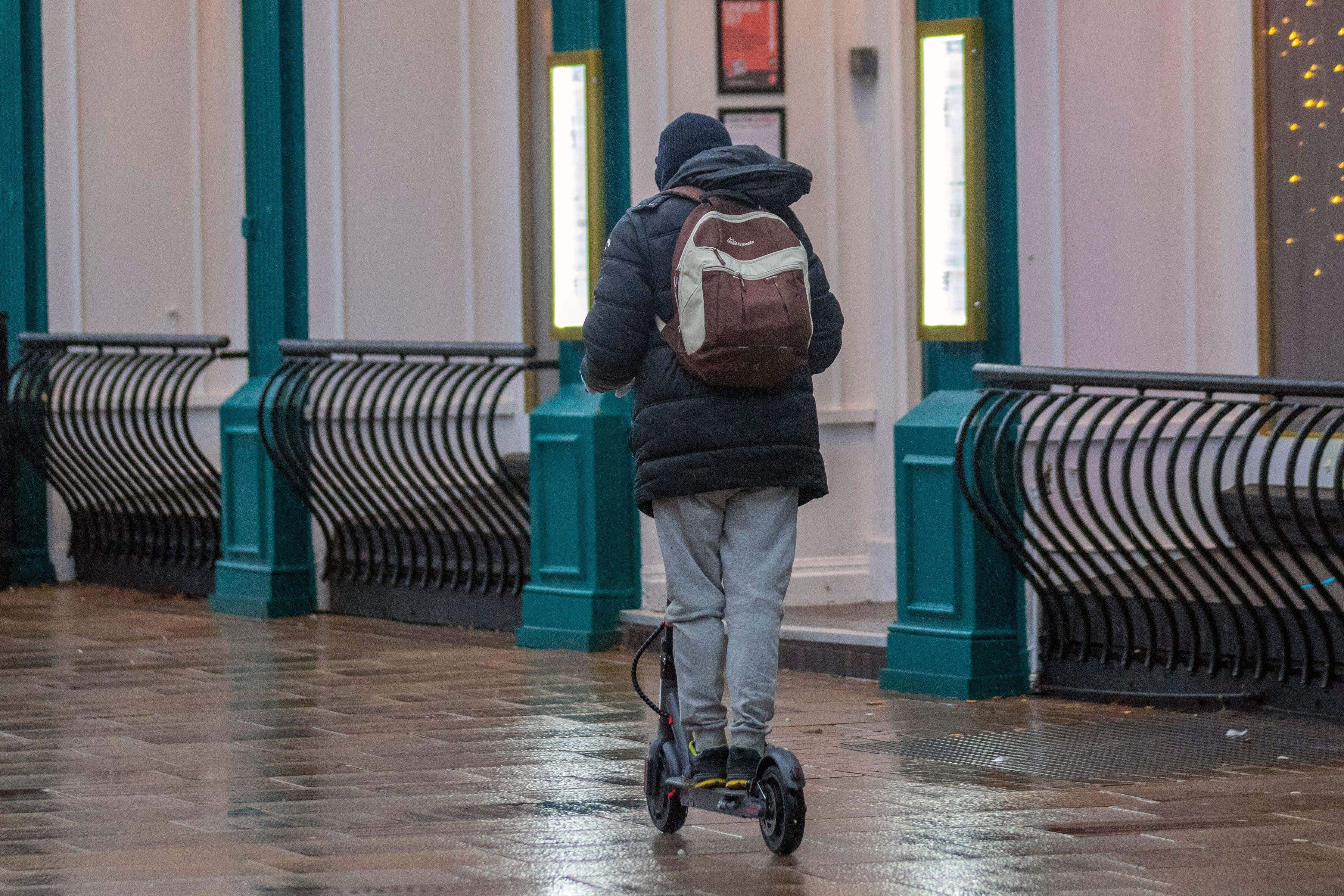Charity calls for e-scooters to emit a sound as blind people do not ‘feel safe’
One pedestrian was killed and 62 were seriously injured in collisions with e-scooters in Britain during the 12 months to the end of June 2022.

Your support helps us to tell the story
From reproductive rights to climate change to Big Tech, The Independent is on the ground when the story is developing. Whether it's investigating the financials of Elon Musk's pro-Trump PAC or producing our latest documentary, 'The A Word', which shines a light on the American women fighting for reproductive rights, we know how important it is to parse out the facts from the messaging.
At such a critical moment in US history, we need reporters on the ground. Your donation allows us to keep sending journalists to speak to both sides of the story.
The Independent is trusted by Americans across the entire political spectrum. And unlike many other quality news outlets, we choose not to lock Americans out of our reporting and analysis with paywalls. We believe quality journalism should be available to everyone, paid for by those who can afford it.
Your support makes all the difference.E-scooters should be required to emit a universal sound to reduce crashes with pedestrians, MPs heard.
Clive Wood, policy and campaigns manager at charity Guide Dogs, called for the Government to introduce legislation because the use of the devices on pavements mean many blind and partially-sighted people do not “feel safe”.
Some e-scooter operators are researching the use of different sounds but “we need to see this being led by the Department for Transport (DfT)”, according to Mr Wood.
The power of an e-scooter means you can go to an extreme speed very quickly
He told the Transport Select Committee: “We need a standard that is uniform. We can’t have different sounds.
“I want to be able to go to any part of the country and if I hear a specific sound I know that’s an e-scooter.”
In December, the DfT published the results of a survey of 3,600 residents in 10 areas of England hosting trials of e-scooter rental schemes.
Some 93% of respondents reported seeing at least one form of anti-social behaviour by users of either rental or private e-scooters, with the most common issue being people riding on pavements.
Mr Wood said: “We can’t have a situation where people do not feel confident they can travel independently on a footpath.
“A pavement is there for me and other blind or partially-sighted people so that we can feel safe.
“At the moment, that isn’t happening with the number of e-scooters being used irresponsibly on pavements.
“The power of an e-scooter means you can go to an extreme speed very quickly in comparison to e-bikes or normal bikes.
“They’re heavy and at the moment a lot of the e-scooters don’t have a sound.
“So I think it is about trying to look at how we can prevent e-scooter use through regulation and legislation in terms of pavement use, but also in other areas as well, so shared space areas for example.
“It is a legitimate and actual concern to blind or partially sighted people and other disabled people and other pedestrians as well.”
DfT figures show one pedestrian was killed and 62 were seriously injured in collisions with e-scooters in Britain during the 12 months to the end of June 2022.
A further 180 suffered minor injuries.
Eleven e-scooter users died in crashes over the same period.
Private e-scooters cannot be legally used on roads or pavements in the UK but have become a common sight.
Trials of rental e-scooters on roads in dozens of towns and cities across England have been extended until May 2024.